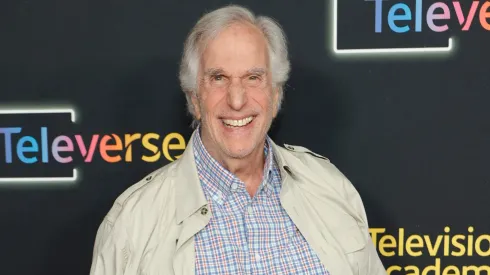Henry Winkler, born October 30, achieved global fame as Arthur “The Fonz” Fonzarelli on the classic sitcom Happy Days (1974–1984), a role that defined the ’70s and ’80s pop culture landscape.
While the leather-clad greaser remains his signature character, his extensive and multi-decade career demonstrates a successful transition beyond the initial typecasting challenge. The breadth of his work is a testament to his versatility as an actor, producer and director in Hollywood.
Gene Cousineau, Barry (2018–2023)
Winkler’s late-career performance as the self-aggrandizing, deeply flawed, yet ultimately human acting coach is widely considered his finest work. This role provided the ideal platform for his dramatic depth and comedic timing, earning him his first Primetime Emmy Award for acting. Cousineau’s transformation—from a cynical drama instructor to a man grappling with genuine moral consequences—was the dark heart of the acclaimed HBO series, confirming Winkler’s ability to anchor a complex narrative.
Arthur “Fonzie” Fonzarelli, Happy Days (1974–1984)
The role that defined a generation and remains his most globally recognized creation. Arthur Fonzarelli was the epitome of cool, a leather-jacketed high school dropout who became the unlikely moral center of the nostalgic 1950s sitcom. What started as a supporting role quickly grew into a cultural phenomenon, turning “Ayyy” and the thumbs-up into universal symbols. Fonzie’s success presented an initial challenge with typecasting, but its enduring legacy is the foundation of Winkler’s career.
Barry Zuckerkorn, Arrested Development (2003–2019)
As the Bluth family’s hilariously inept and morally questionable defense attorney, Barry Zuckerkorn became a cornerstone of cult comedy. Winkler masterfully played the character’s incompetence and sleaze for maximum effect, often using subtle physical comedy—and a memorable reference to “jumping the shark”—to land his jokes. His recurring appearances were essential to the show’s unique brand of quick-witted, neurotic humor, showcasing his talent for playing absurd authority figures.
Coach Klein, The Waterboy (1998)
Winkler’s collaboration with Adam Sandler proved to be a lucrative and popular venture, starting with the role of Coach Klein. He portrayed the perpetually nervous and down-on-his-luck football coach who takes a chance on Bobby Boucher. The performance balanced broad comedy with genuine sweetness, providing an earnest foil to Sandler’s character and demonstrating Winkler’s enduring appeal to a new, younger audience in the late 1990s.
Dr. Lu Saperstein, Parks and Recreation (2013–2015)
This role solidified Winkler’s second career as a TV comedy guest star powerhouse. Dr. Saperstein is the outrageously wealthy, vindictive, and eccentric patriarch of the equally chaotic Saperstein family, a brief but brilliant contribution to the acclaimed NBC sitcom. His delivery of increasingly absurd lines, often related to his spoiled children, Jean-Ralphio and Mona-Lisa, made him a fan favorite and a highlight of the show’s later seasons.
Chuck Lumley, Night Shift (1982)
A pivotal dramatic departure for Winkler, starring as the mild-mannered and repressed morgue attendant Chuck Lumley in this dark comedy. Directed by Ron Howard, the film saw Winkler’s character team up with Michael Keaton to run an unconventional escort service out of the morgue. It was a crucial step in proving he could succeed in a leading film role far removed from Fonzie, earning him a Golden Globe nomination in the process.
Principal Arthur Himbry, Scream (1996)
In a clever casting move that subverted his family-friendly image, Winkler appeared as the high school principal in Wes Craven’s iconic horror film. Though his character’s screen time is limited, his uncredited, panic-stricken demise is one of the movie’s most memorable moments. His presence added a layer of meta-humor and star power to the genre-defining slasher movie, highlighting his willingness to embrace subversive projects.
Ted Newman, Click (2006)
Another key role in the Adam Sandler universe, Ted Newman is the loving, albeit slightly goofy, father of the protagonist. Winkler provides the emotional core of this high-concept fantasy comedy, serving as a powerful reminder to his workaholic son about the value of family and living in the present. His scenes are essential for grounding the film’s fantastical premise with genuine dramatic weight.
Jack Dunne, Heroes (1977)
One of his earliest attempts to challenge the Fonzie mold, Winkler starred in this dramatic road movie as a Vietnam veteran struggling with PTSD and mental illness. The performance was lauded for its complexity, as Winkler portrayed the veteran’s profound trauma and delusion with sensitivity. It was a critical sign that the actor was serious about pursuing diverse roles beyond the sitcom stage.
Butchey Weinstein, The Lords of Flatbush (1974)
Released the same year as the debut of Happy Days, this film features Winkler as one of a group of 1950s Brooklyn greasers. His portrayal of Butchey, a slightly more serious counterpart to his soon-to-be-iconic Fonzie, offers a look at the gritty realism and dramatic chops he possessed before becoming a comedy star. It stands as an important, often overlooked piece of his early filmography.
